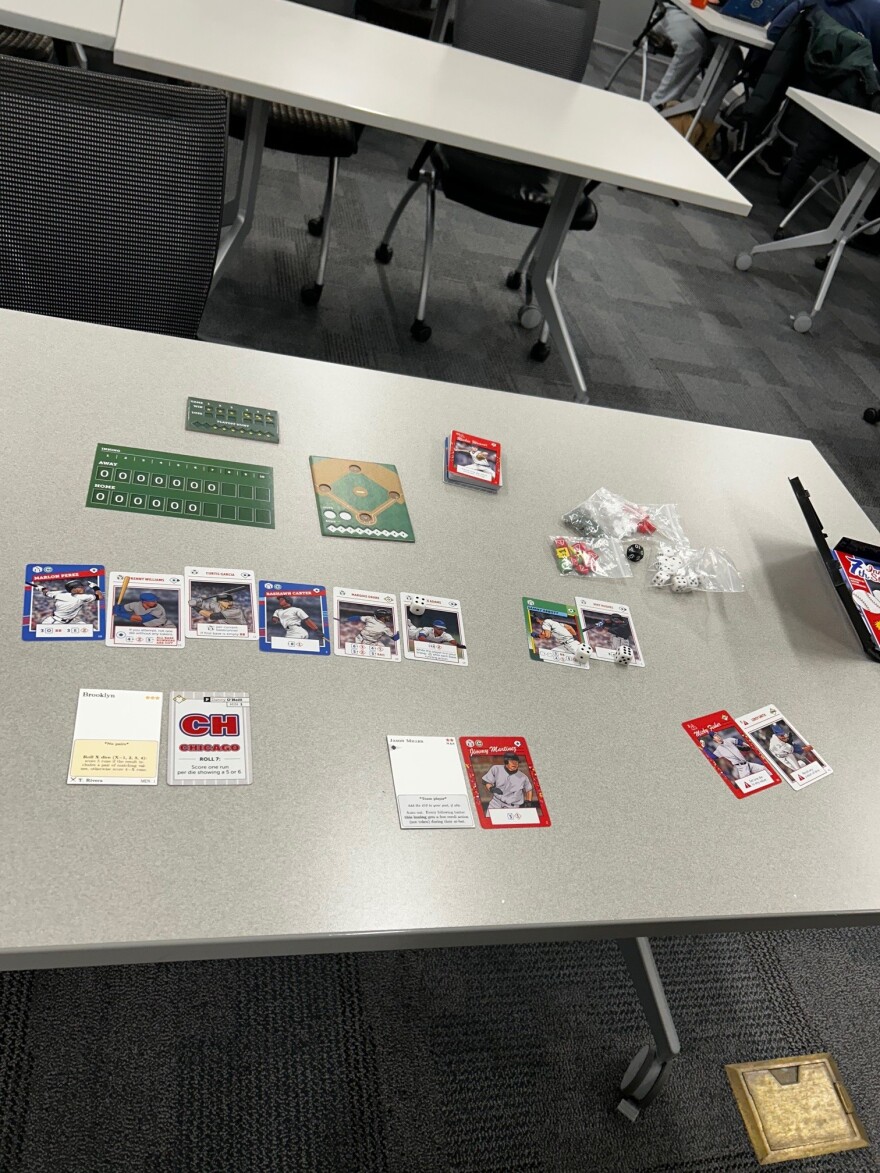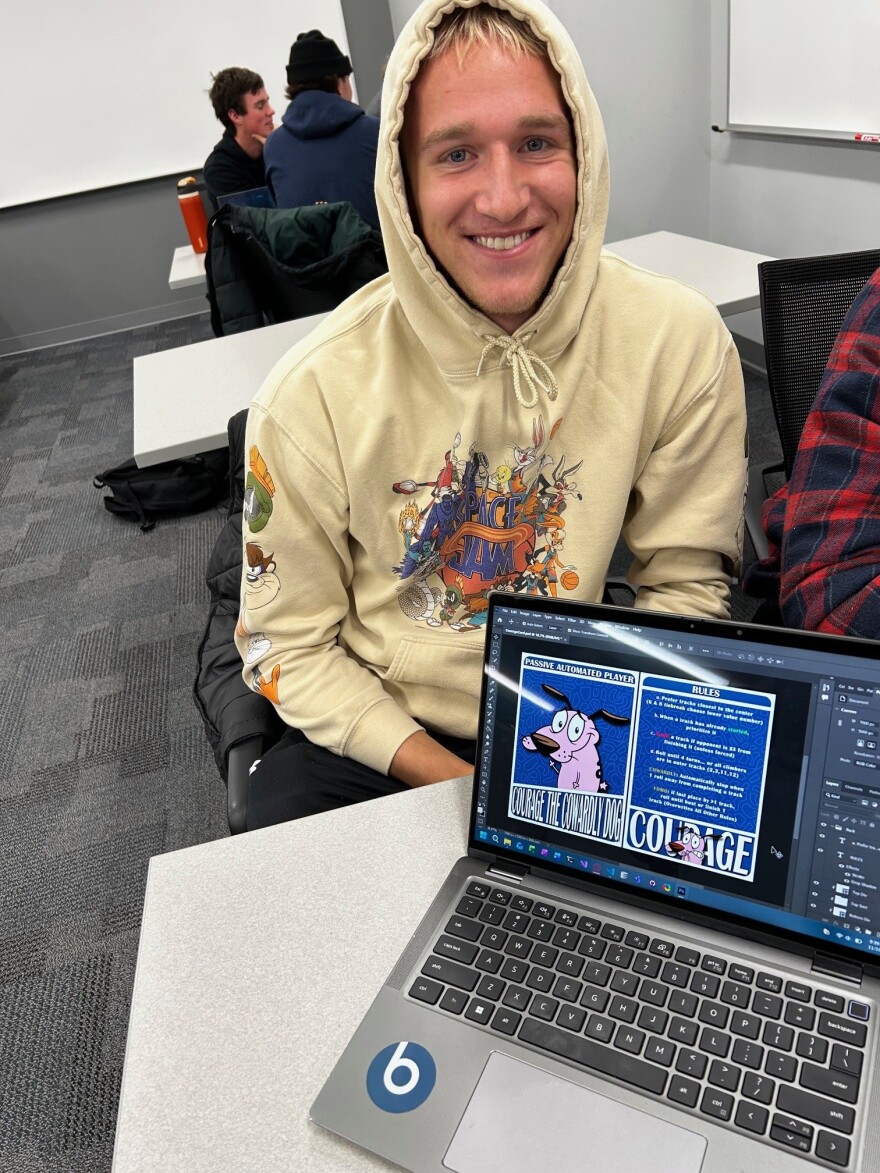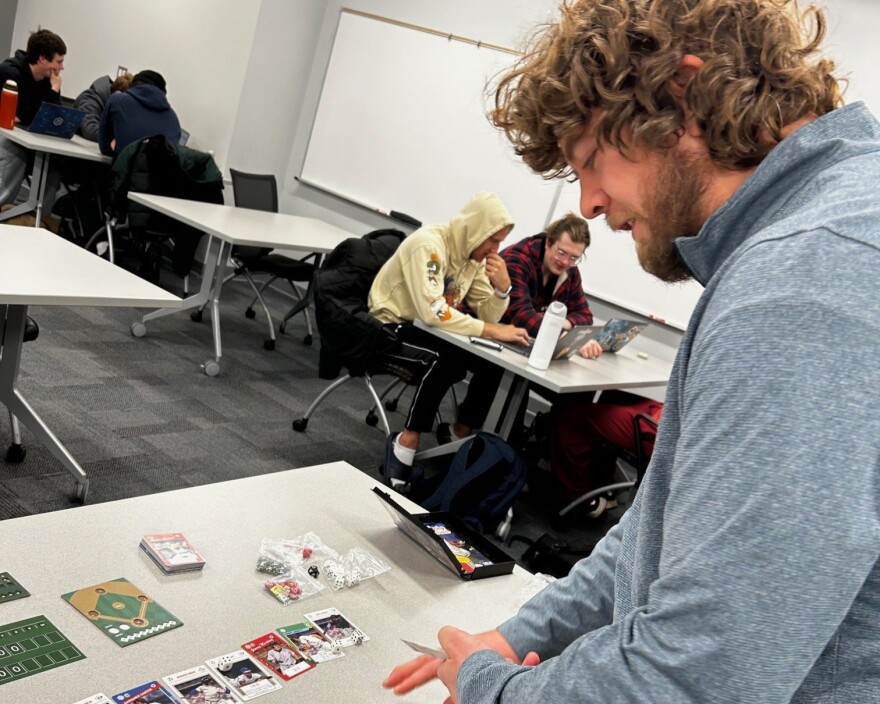Whether it’s simple counting or the theory behind probability, there’s a little math behind every board game. A Dakota State University Assistant Professor of Math has had two board games published, and he’s sharing his love of math and table-top games with his students.
When Justin Schroeder was a kid, he would sit in his room and simulate a baseball game.
“I would roll dice and have a chart and be like, okay, if you roll a six, it’s a single. If you roll a ten, it’s a strikeout," Schroeder explained. "I would play, you know, for hours, just simulating games. And so I wanted to take that idea, but also provide more of a strategic element for players so you can draft your team of players, arrange your batting lineup, choose are you going to swing away? Are you going to try to bunt and sacrifice a runner?”

Now as an assistant professor of math at Dakota State University, Schroeder has had that game called Seventh Inning Stretch published. He sets out the different pieces and playing cards on a table as he compares a plain white card with just text on it to what looks like a bubble gum baseball card with images and stats.
“And so you can see the difference between the cards I make and the cards that the publisher makes. These are much better, but they all start out like this,” Schroeder said, comparing the two.
To play the game you draft your team and set up a batting order, select your pitcher, and an opponent card. Each card has a set of rules determining the function of the numbers showing on a roll of the dice. You can substitute players based on the rules on their cards.
“But it’s all how you roll the dice," Schrader said. "I can never guarantee them I’m going to win. I can put the odds in my favor. But at the end of the day, there’s still that chance. And it makes it really exciting. I’ve had games, I’m playing by myself, and I’m standing at the table rolling dice and then yelling when it comes out the right way or groaning when it doesn’t.”

Justin Schroeder says Seventh Inning Stretch was released earlier this year. He has since created extra player cards and a playing mat. He said the overall response was interesting.
“There were people who were playing it, and they said felt a little bit like a type of game where you are heroes battling monsters. And at first I was like, what are you talking about? It’s a baseball game. It has nothing to do with that. But then as I looked at it more and considered what they said, you know, you’re rolling dice to try to get hits. The other team is rolling dice trying to get runs. Well, if you just translated that into, you know, you’re doing damage to them and they’re doing damage to you, it also made a lot of sense.”
That’s how Schroeder’s second published game called Storybook Saga came about. It has public domain characters like Winnie the Pooh, Robin Hood, and Peter Pan battling against classic fairy tale villains. He wrote the rules for each card while the publisher created the unique artwork.
“So in my game, you are playing as the heroes. And so you need to somehow simulate what are the villains going to do. And it needs to be interesting. It needs to be easy to carry out. You can’t have a four-page document of instructions for each villain. It’s got to be like a tweet length.”
Schroeder said it’s been an interesting mathematical challenge for him. And he translates that challenge into the classroom. About 17 students who are mostly computer science majors are working in groups of two or three. They studied a game called Can’t Stop where you roll dice to try to climb a mountain faster than other people.
Tyson Grinde is a junior at Dakota State. He and his team are working on an automated player card for Can’t Stop. They created a Courage the Cowardly Dog card based on the Cartoon Network show. He calls this player passive.

“The game is kind of similar to blackjack in a way that you can continue to hit on different tracks, or you can bust if you don’t roll a number that’s already on your track," Grinde explained. "So our player tries to prioritize the tracks that are rolled most often, which would be 6,7,8— anything closer to the middle is more common. And then if he gets a certain amount up the track, then he stops before he busts.”
Grinde says they wrote in a few special rules or superpowers, that help if the player is falling behind. He says it’s the perfect exercise for someone like him who loves math and then add in a little graphic design and problem-solving skills.
The class Justin Schroeder teaches is called the Mathematics of Games. He said there is a video game design program at DSU, and students learn how math impacts game design. He uses board games because that’s his passion. Schrader says he has many more board game ideas in his mind. He’s leaning toward a football game for solo players but instead of rolling dice, players draw colored cubes blindly out of a bag.
“You might have some colors that are good, some colors that are bad. But it’s a similar idea of understanding your probability, deciding do I stop and cut my losses? Do I push it? Giving you just a little bit of a feel for what a football coach might experience when it’s 4th and 1. Do you call this safe run play? Do you throw it deep?”
He said the baseball and Storybook Saga games are available online at Game Found for about $30. Combined, he’s sold around 3,400 copies.

